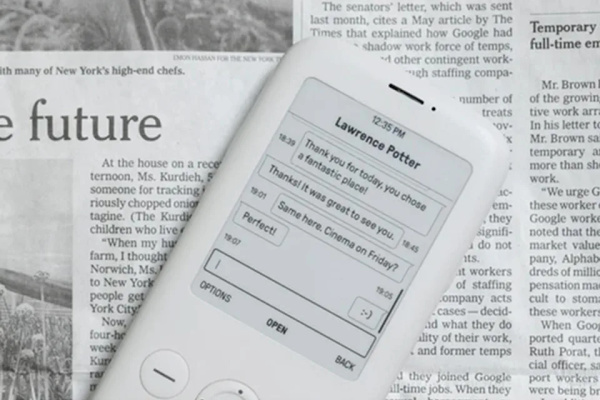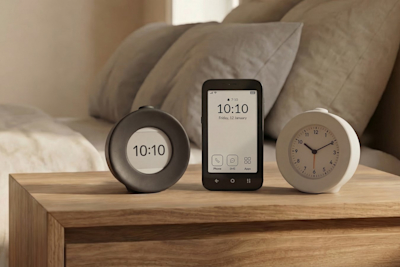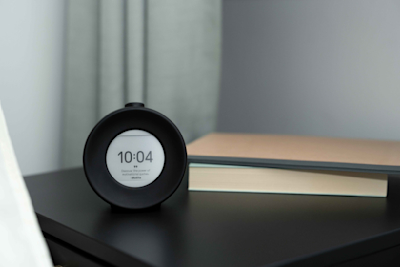
Digital Technology Changed How We Consume & Process News
The Digital World vs. The News
We certainly live in interesting times. These days, anyone with a Twitter handle can be a journalist. Anyone with a YouTube channel can be a content creator, as well as a reporter and a Kardashian has more Instagram followers than a world leader. Gone are the days when tuning into the local news channel or flipping through the morning paper were the only ways to get caught up on world events.
Currently, smartphones and mobile technology dominate the way we consume the news and stay on top of what’s going on in the world. We can instantly get access to the latest events through social media or through news applications on our phone. News outlets even have the ability to livestream the news from video sharing platforms such as YouTube, giving us constant access to information.
Undoubtedly, digital media has altered the news industry, transforming how news is gathered, broadcasted and distributed. Although access to information is theoretically a good thing, because it has the power to help us make informed decisions and smart choices. Having so much information at our disposal can inevitably lead to information overload. As a result, it has the potential to do more harm than good.
What exactly is information overload and why does it matter?
Due to the advancements in technology, many of us now expect to receive our news in real time. The Internet has made disseminating news faster, with users able to access information within seconds. This often results in news coming at us from several different mediums at the same time.
The term, “information overload,” was first popularized by an American writer and futurist, Alvin Toffler, in his 1970 book, titled Future Shock.
The phrase describes a phenomenon which occurs when we consume so much information to the point of feeling overwhelmed by the sheer volume of it. Believe it or not the human brain can only process a certain amount of information at a time. When you consume more information than you can reasonably process, you can begin to experience the stress of information overload. This usually results in us feeling more confused than knowledgeable about a particular topic.
Information overload is something most of us have likely felt or dealt with at one time or another. It is often the feeling we get when, after hours of scrolling around the internet, we realize there’s so much data in our brain that we can no longer think clearly. Information overload can often present as brain fog and difficulty making decisions. According to Pew Research, 20% of individuals feel overloaded with information. This means 1 in 5 people are operating in a state of mental fog. [1]
When symptoms of cognitive overload appear, we may begin to feel irritated. And are no longer able to think clearly. Research suggests that we may even experience trouble making minor decisions and be unable to focus.[2]
Not only does consuming huge amounts of information tire our mind, but it also affects our willpower. Additionally, our ability to stay motivated and productive can be impaired when there is too much information in our head. When you’re overloaded and overwhelmed with information, even seemingly minor tasks can be challenging to complete.
Finally, in some cases information overload can trigger anxiety or aggravate the anxiety an individual is already experiencing.
The trouble with the Information bubble
The last 20 years have greatly shaped where and how we consume news. Today, technology not only plays a crucial role in how knowledge is shared, but also how it is processed. When we consume extreme amounts of information, it becomes more difficult to distinguish between high-quality and poor-quality content.
Previously, when we read the daily newspaper or watched the evening news, we were served with information without the option of filtering what we heard or read. However, today, technological advances, with the advent of smartphone apps and social media, created different ways that the news reaches people. Additionally, those channels can determine what information is communicated to you. The results can be quite dramatic.
Getting our information from only a limited number of sources can often result in being stuck in an information filter bubble which has a tendency to reinforce our beliefs. Today, social media has the power to determine their news feed according to our individual interests.
If we only rely on social media or search engines for news, algorithms, which use information from our previous searches and by tracking our behavior, will choose to prioritize and display information that is tailored specifically for us. Thus, being trapped inside an information filter bubble never allows you to see the other side of a story. In order to be better informed and not fall for confirmation bias, we need to know what each side is saying about any given issue.
Taming the information beast
To put it simply, information overload is definitely a source of stress. We live in a world dominated by technology. It’s available to us 24/7 and it is always ready to claim our attention at any time. One of the main reasons information overload has negative effects on our thinking processes is that it very often comes in the form of interruptions and distractions.
Although we can’t entirely turn off the flow of information in our lives, it’s important to know that we have some control over how much we consume and what sources of news are acceptable for us. We have the power to ignore some of the information that is constantly coming at us but by ensuring that it’s relevant and that we deal with it on our own terms.
It’s also important to actively take control of news and digital media consumption and step outside your filter bubble. If we stop questioning the trustworthiness of the information we consume, it becomes a lot easier to be manipulated.
One of the best ways to combat information overload is by taking the time to unplug for a few hours each day, step away from technology and get engaged in real life. The best way to clear our head is to spend some time outside, without social media, no news notification, no emails. Just you, surrounded by the real world. A distraction-free phone, like Mudita Pure, is the perfect solution. It allows you to unplug from all the unnecessary distractions, while still staying connected.
Indeed, technology has given us a number of ways to improve how we stay informed, but it has also made it more difficult to stop the endless newsfeed. When it comes to news, it helps to keep a balanced approach and take a step away from the constant flow of information. Taking some time to reflect and process everything will greatly improve decision-making and enhance creativity.
If you enjoyed this article, please check out similar ones featured on the Mudita blog and learn more about how living more of your life offline with less distractions can help enhance your health and overall well-being.
Related stories

The Great Disconnect & How Technology is Changing Relationships
Technology keeps us reachable 24/7, but often emotionally unavailable. Discover how digital habits affect relationships and how to reconnect offline.

Reclaiming the Year Ahead, One Intentional Choice at a Time
Reclaim your year through small, intentional choices. Learn how digital decluttering and mindful technology can restore focus, calm, and clarity.

The Power of Motivational Quotes
Motivational quotes boost focus, resilience, and positivity. Discover their impact and how Mudita Harmony’s Custom Quotes bring meaning to daily life.
If you'd like to receive the best stories from our blog, keep up to date with our progress and get notified about our product releases and special discounts.